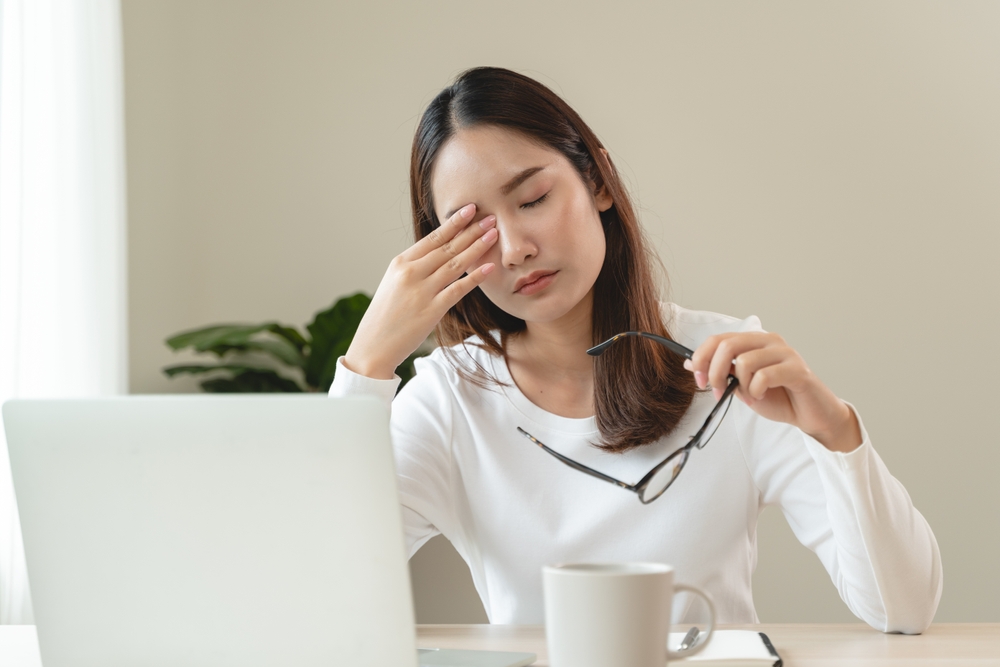
Dry eye syndrome is a common condition that affects millions of people, causing discomfort, irritation, and sometimes even vision problems. While it may seem like a minor issue, untreated dry eye can lead to more serious complications. Understanding what dry eye is, its causes, and how you can prevent it is key to maintaining eye health.
What Is Dry Eye?
Dry eye occurs when your eyes don't produce enough tears or when the tears evaporate too quickly. Tears are crucial for lubricating the eyes, removing dust, and providing a smooth surface for light to pass through. When tear production or tear quality is compromised, it can lead to dryness, redness, a gritty sensation, and even blurred vision.
Common Causes of Dry Eye
One of the most common causes of dry eye is Meibomian Gland Dysfunction (MGD). The meibomian glands are responsible for producing the oily layer of your tear film, which prevents tears from evaporating too quickly. When these glands are blocked or not functioning properly, it can lead to rapid tear evaporation and dry eye symptoms.
Dry eye can result from various factors, including aging, as tear production tends to decrease over time. Environmental conditions, such as exposure to dry, windy, or smoky settings, also contribute to the issue. Prolonged screen time reduces blinking, which accelerates tear evaporation. Additionally, wearing contact lenses can interfere with natural tear production and worsen symptoms. Certain medical conditions, like autoimmune diseases and diabetes, along with specific medications, can also lead to dry eyes. Hormonal changes, such as those experienced during pregnancy, menopause, or from birth control pills, may further affect tear production.
How to Prevent Dry Eye
Preventing dry eye is all about keeping your eyes hydrated and avoiding factors that can lead to tear evaporation. Here are some effective tips:
• Stay Hydrated: Drinking plenty of water throughout the day helps keep your body and eyes hydrated.
• Use a Humidifier: If you spend a lot of time indoors, especially in heated or air-conditioned environments, using a humidifier can add moisture to the air, helping prevent your eyes from drying out.
• Take Breaks from Screens: Follow the 20-20-20 rule: every 20 minutes, take a 20-second break to look at something 20 feet away to reduce eye strain and improve blinking.
• Wear Sunglasses: Protect your eyes from wind, dust, and harsh sunlight by wearing wrap-around sunglasses when outdoors.
• Use Artificial Tears: Over-the-counter lubricating eye drops can help keep your eyes moist throughout the day, especially in dry conditions.
• Eyelid Hygiene: Cleaning your eyelids regularly with a warm compress can help keep your meibomian glands clear and functioning properly.
• Limit Contact Lens Use: If you wear contact lenses, consider reducing your wear time or switching to daily disposables to minimize irritation.
Schedule a Consultation with Roggy Eye Clinic Today
If you’re experiencing dry eye symptoms, it’s important to consult an optometrist for a proper evaluation. They can determine whether you have underlying conditions like meibomian gland dysfunction or another cause contributing to your dry eyes. At Roggy Eye Clinic, we specialize in diagnosing and treating dry eye. Whether you need a simple lifestyle adjustment or more advanced treatment, we’re here to help you find relief and maintain long-term eye health.
For more information on how to prevent dry eye, contact Roggy Eye Clinic at our office in Coralville, Iowa, by calling (319) 569-1936 to book an appointment today.









